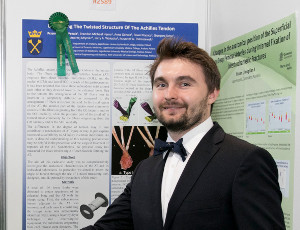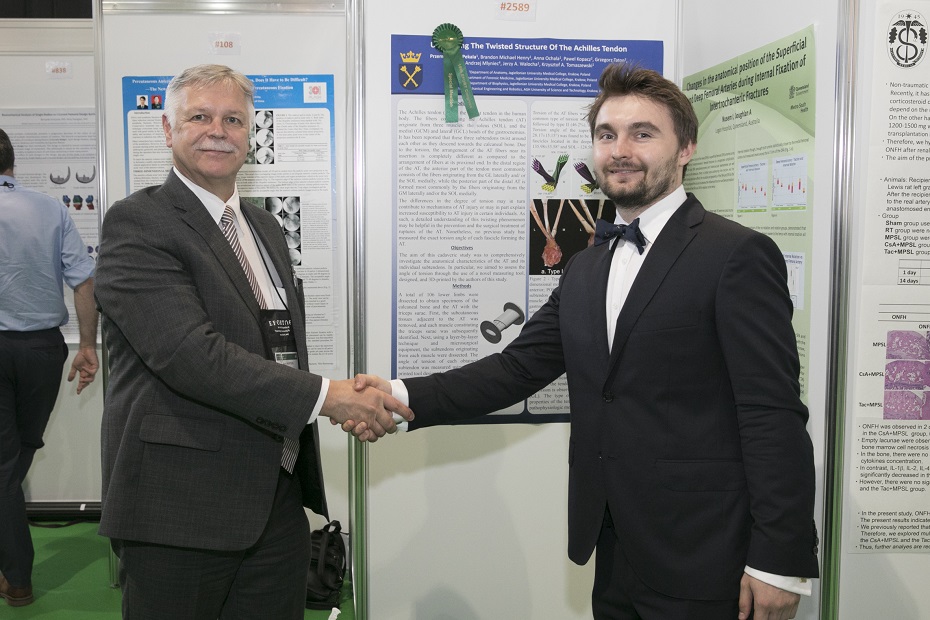
During the 18th European Federation of National Associations of Orthopaedics and Traumatology (EFORT) Annual Congress, held in Vienna from 5 May to 2 June 2017, Przemysław Pękala, a student of the JU MC Faculty of Medcine, presented two papers that received critical acclaim amongst the experts attending the conference.
The papers – Untangling the Twisted Structure of the Achilles Tendon (Przemysław A. Pękala, Brandon Michael Henry, Anna Ochala, Paweł Kopacz, Grzegorz Taton, Andrzej Młyniec, Jerzy A. Walocha, Krzysztof A. Tomaszewski) and Anatomic Communications of the Retrocalcaneal Bursa – A Radiologic Simulation Study (Przemysław A. Pękala, Brandon Michael Henry, Jakub R. Pękala, Joanna Golec, Jerzy A. Walocha, Krzysztof A. Tomaszewski) – were written at the JU MC Chair in Anatomy under the supervision of Prof. Jerzy A. Walocha and Dr hab. Krzysztof Tomaszewski.
Both qualified to a moderated best poster session. The paper Untangling the Twisted Structure of the Achilles Tendon received the Best Basic Science Session Poster award, outcompeting several dozen other papers.
The EFORT Annual Congress is one of the most important orthopaedic conferences in the world. Every year, it is attended by several thousand orthopaedists and traumatologists.






